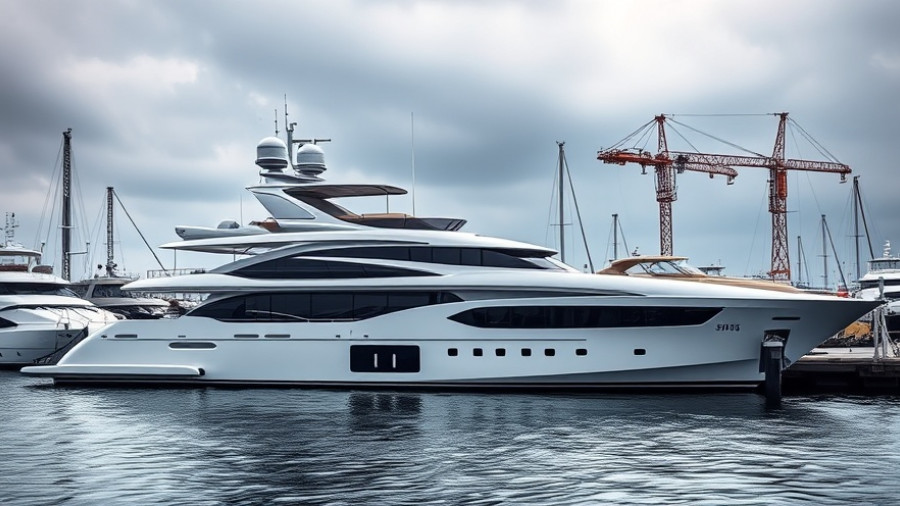
Luxury Yachting: A Controversial Symbol of Excess
Recent outrage sparked by a TikTok video has put the spotlight back on the stark contrast between extreme wealth and environmental responsibility. In a video shared by the TikToker Trader Mayne, viewers are introduced to the 350-foot superyacht Atessa V, owned by Dennis Washington. With running costs exceeding $2 million per month, this luxurious vessel epitomizes the excesses of the ultra-rich, highlighting questions about climate change and wealth disparity.
The Environmental Toll of Superyachts
According to research, superyachts are among the most significant contributors to carbon emissions. A 2019 study indicated that the world's top 300 superyachts emit more than 315,000 tons of CO2 annually, with some yachts producing emissions 860 times greater than the average person. This raises ethical concerns regarding the responsibility of the wealthy in combatting climate change, especially as economic data indicates the international superyacht market continues to grow, reflecting an ongoing trend of conspicuous consumption and environmental disregard.
Criticism from Social Media: The People's Platform
The comments beneath Mayne's video echo sentiments of disbelief and disgust, indicating a public weariness towards such displays of wealth. Observations like, "The world is getting tired" highlight a burgeoning call for accountability among the super-rich. Mark Zuckerberg’s recent $300 million yacht purchase serves as an additional point of contention, where critics accuse him of climate hypocrisy amid his environmental advocacy.
Can the Wealthy Balance Luxury and Responsibility?
In a world increasingly affected by climate change, the ownership of luxury items, particularly superyachts, raises a substantial dilemma. How can affluent figures advocate for sustainability while indulging in practices that exacerbate environmental issues? The push for eco-conscious upgrades, such as solar panels and electric propulsion systems in superyachts, presents a potential path forward. However, the implementation of these upgrades often feels insubstantial compared to the scale of damage caused by the emissions themselves.
Rethinking Environmental Impact: Actions Over Words
The dialogue surrounding superyacht ownership is grounded in a broader plea for action over mere offsetting. Critics emphasize that buying carbon offsets may not be an adequate solution if it perpetuates a lifestyle that contributes negatively to the environment. The challenge lies not only in the wealth's capacity to impact climate change but also in the societal perceptions of wealth and environmental responsibility. As technological advancements offer potential solutions, a genuine commitment to reducing carbon footprints will be the real measure of responsibility.
Conclusion: A Call for Change
As the world grapples with increasing environmental challenges, the extravagant lifestyles of billionaires are coming under scrutiny. To preserve the planet for generations to come, addressing the environmental impact of phenomena like superyachts is crucial. It requires a collective effort from both the affluent and society at large to foster sustainable practices. Only through conscientious choices can we pave the way for a greener future that respects both luxury and our environment.
 Add Row
Add Row  Add
Add 




Write A Comment